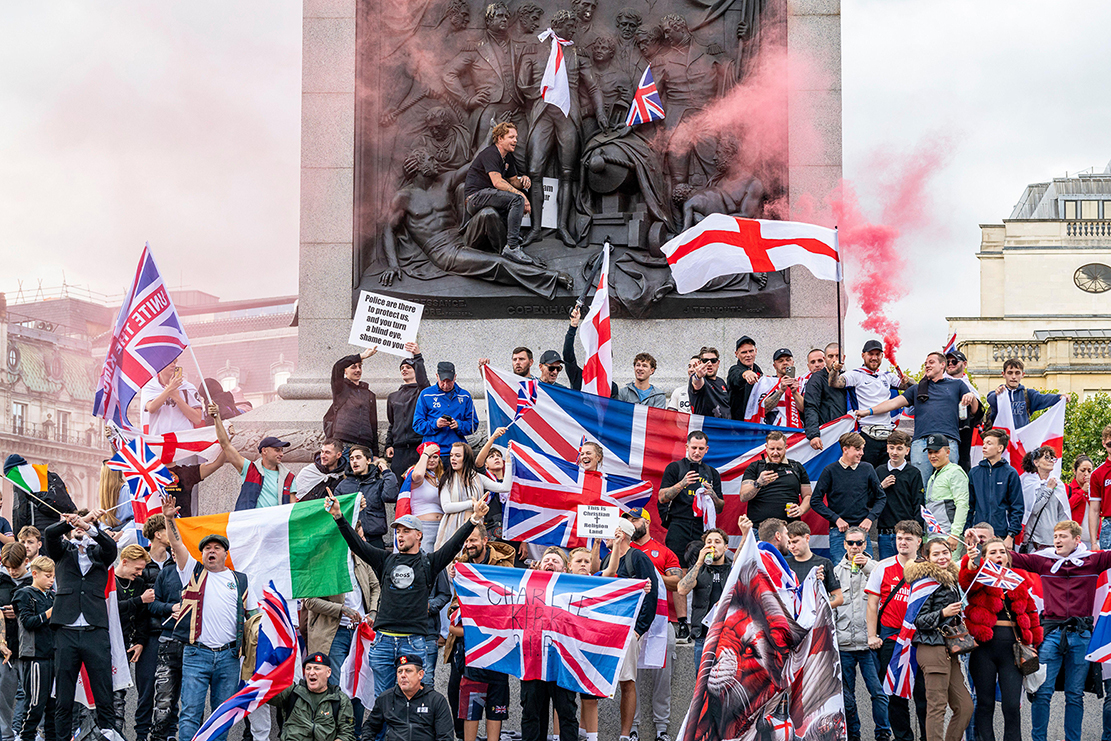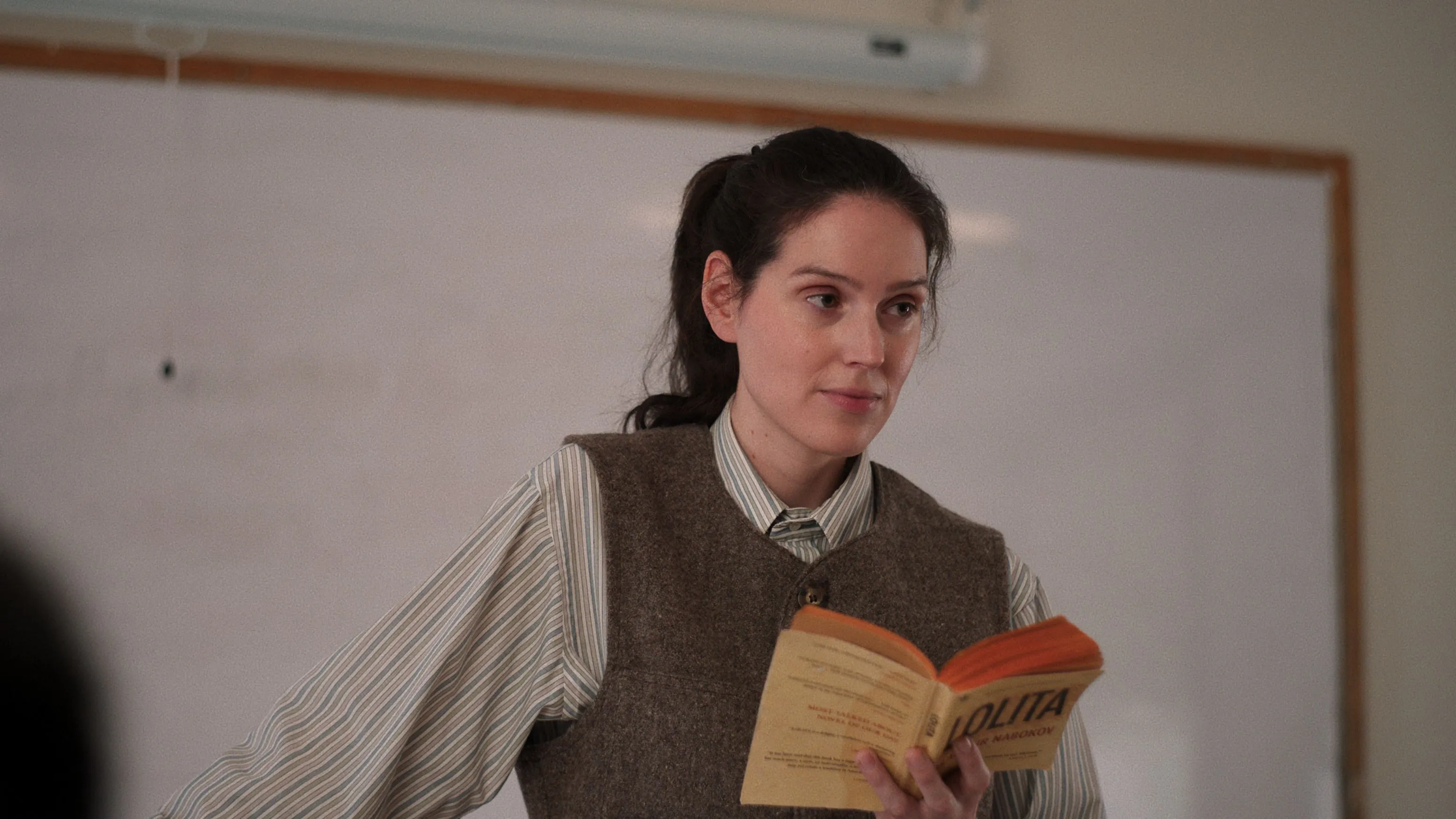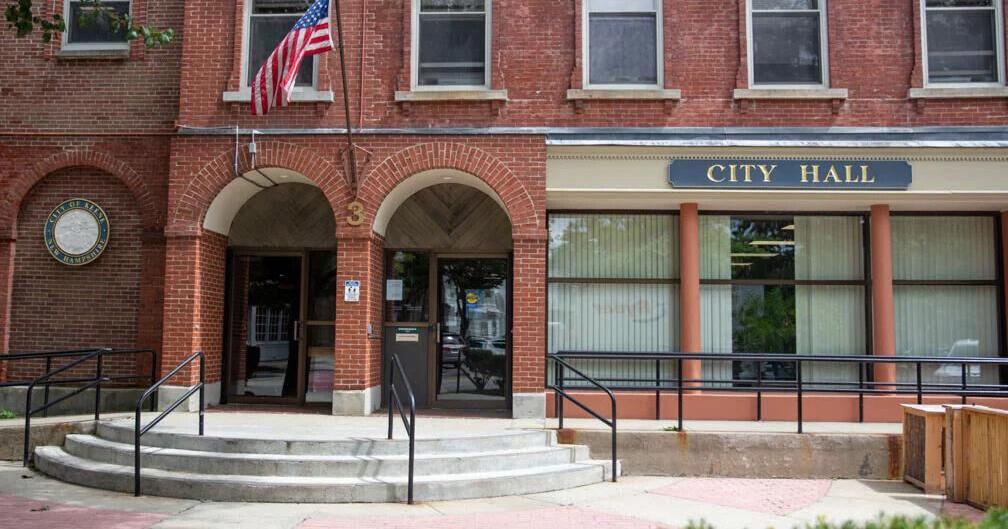By Anoosh Chakelian
Copyright newstatesman

A lot of evocative words ricocheted around central London during the far-right Unite the Kingdom march. “Violence.” “Revolution.” “Traitors.” But the one that struck me most was “mother”. To whistles and cheers, Tommy Robinson introduced to the stage “one of the Epping mothers”, intoned with all the hoarse-hoolie reverence for Mum’s match-day roast.
“I stand before you today not as a politician, certainly not as an expert, but what I truly am: a mother,” said the mother in question, Sarah White, who has three children and was arrested on public order charges during a protest against the Bell Hotel housing asylum seekers in Epping, Essex. Footage of her arrest, as she refused to remove a Union Jack from the civic centre, went viral.
“Every mother, every grandmother and every woman here today knows what it means to worry for the next generation,” she announced to an unusually hushed crowd. “Because we are the ones that carry the weight of tomorrow on our shoulders.”
Having reported on protests outside asylum hotels over the summer, this language felt familiar to me. Outside the Bell Hotel, which became a site of anti-migrant pilgrimage after a resident was charged with sexual assault against a 14-year-old girl (he has since been convicted), I was told repeatedly that “concerned mothers” were behind the backlash. Under the gaze of ex-British National Party councillors and members of Homeland, a splinter group of the neo-Nazi Patriotic Alternative, it felt as if the mums were being used to shield the reputations of exploitative actors.
At the Unite the Kingdom march, I spoke to mothers and grandmothers who said they just wanted to keep their children and grandchildren safe. The men – and there were many more men – told me “the mums have been leading this” and “we’re here to support the mums”. There was an amusing moment when a young man cloaked in a St George’s Cross asked about another flag fluttering ahead of him. “It’s the suffragette flag,” the woman waving it informed him. He looked a little stunned and hung back, turning to his mate: “The women are taking over!”
At once reverential and patronising, the view of the “mother” is so ordinary and pure that she is inherently apolitical – as if giving birth has ridded her of any capability to riot or hate. She is also contradictory: she is deployed on the one hand to stand for a homely normie and the other as a politically powerful force; someone finally looking up from the dishes and concluding that something must be done. Lucy Connolly, a childminder and mother of three whose case became a radical-right cause célèbre when she was jailed for tweeting “set fire to all the fucking hotels” ahead of the Southport riots, called herself a “ridiculously overprotective” mother.
All this maternal iconography feels drawn from the same pretext that leads men to chuck crowd-control barriers at police and set fire to asylum hotels in order to “protect our women and children” or “save our kids”. The mother is both lauded as the protector – of Britain’s future, of family values – and flattened as the protected. There is a sliver of Freudian nostalgia here, too: lost men spoiling for a time when Mum kept them safe. “They’re strong women, and they’ve had enough,” as one man in Epping said admiringly. I was told by a mother present that the asylum hotel protests were a “#MeToo moment”.
None of this is new. After spending more than three years with grassroots activists in the English Defence League (EDL) – the far-right outfit founded by Robinson – the sociologist Dr Hilary Pilkington found confused gender politics in such groups, which co-opt the language of women’s rights and gay rights “to ‘expose’ what is envisaged as an oppressive and intolerant Islamist ideology”. Women had their own platform – with the motto “EDL Angels stand beside their men not behind them” – but were constrained by patriarchal conservatism (staying home from marches to look after the kids, “not allowed to go” by their partners or accused of being “slags” trying to sleep around the movement).
But it isn’t just the far right using mothers to launder their brand. Nigel Farage’s Reform UK, keen to shed its fags-and-bitter image, talks up polls suggesting it is rising in popularity among women and champions its handful of female representatives. Labour wooed Stevenage Woman ahead of the 2024 election: “A mum in her early forties, bringing up her two kids… More concerned with the travails of everyday life, she is not politically engaged.” She joined a sisterhood of British political archetypes: Waitrose Woman, Worcester Woman, Margaret Thatcher’s housewife balancing the books “with a little left over for a rainy day”.
At the beginning of September something changed the lives of mums around the country – and it wasn’t a planning objection to asylum hotels. The government began funding 30 hours of free childcare a week. A big, overnight change in circumstances for families, including my own. This is a Conservative policy inherited by Labour, following a campaign by pressure groups such as Pregnant Then Screwed – whose founder, Joeli Brearley, once told me motherhood had “radicalised” her. I wonder whether if Keir Starmer had focused solely on taking credit for this, rather than announcing yet another tweak to asylum rules, he might have done himself a favour with Britain’s anything-but-apolitical mums.
[See also: My night dancing with Nigel Farage]



